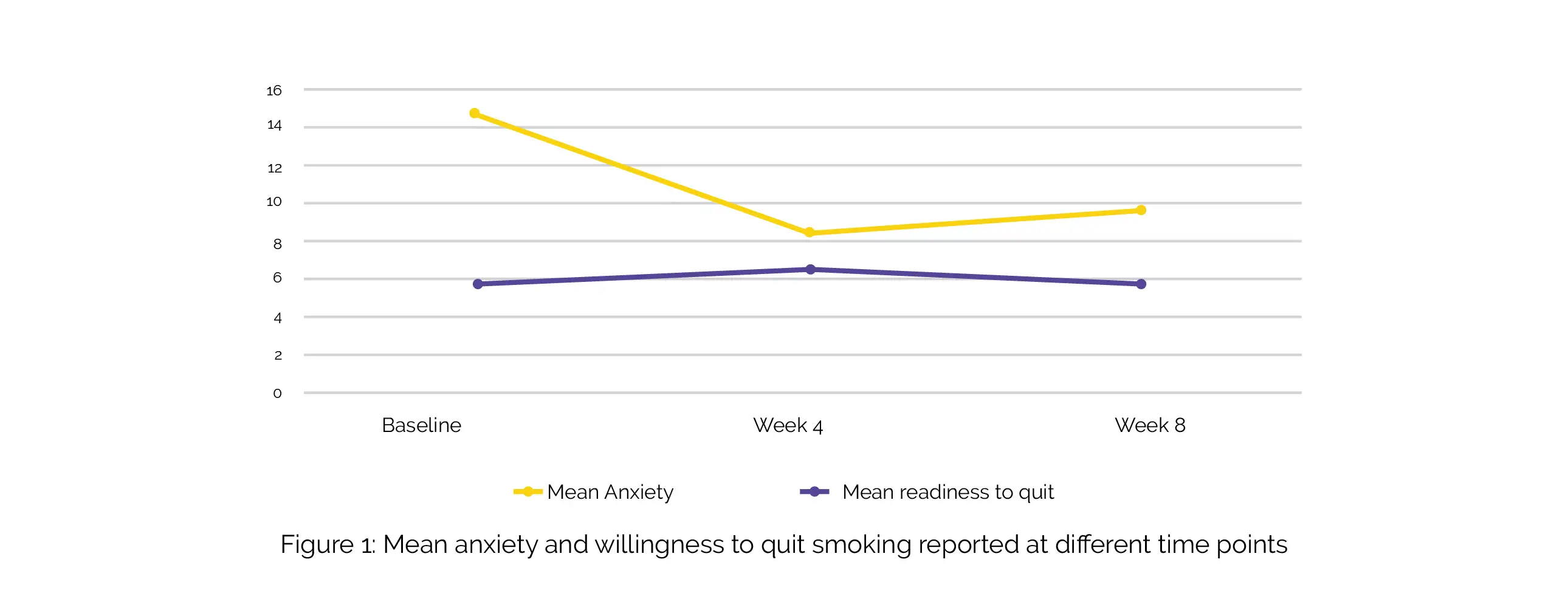Categories
Change Password!
Reset Password!


Mindfulness-based practices can be effective in reducing anxiety in people with HIV who are often reluctant to add extra medicines to their present complex routines.
Smokers with HIV can greatly benefit from mobile apps providing mindfulness stress reduction training. A study published in the “International Journal of Environmental Research and Public Health” found that mindfulness training helped to lower anxiety levels and increase the motivation to quit smoking in these patients. Management of anxiety is a crucial step towards quitting smoking and maintaining abstinence in people with HIV.
This one-armed feasibility trial by Patricia A. Coie et al. was performed to examine the suitability of app-delivered mindfulness training for mitigating anxiety before a quit attempt in people with HIV who were not intending to stop in the following thirty days. A total of 16 volunteers (mean age of 51.5 years] who smoked 11.4 cigarettes per day on average were signed up. A follow-up of 8 weeks was done. The study participants were asked to accomplish 1 component every day out of a total of 30 components from the app which has been intended to decrease anxiety. The symptoms of anxiety and willingness to leave smoking were evaluated at the start, at weeks 4 and weeks 8.
The mean number of components or modules accomplished, training attendance, and the number of people who completed the assessment were investigated. The ups and downs in self-reported anxiety and readiness to quit were examined with the help of a nonparametric way i.e. generalized estimating equations. In week 4, an interview was conducted to investigate the suitability of this mobile application. Overall 93% of participants finished the study, hence there was high feasibility. The number of study sessions finished was 2.7 (Standard deviation [SD] = 0.59), and the training components completed was 16.0 (SD 16.8) on average.
Anxiety was found to be high at baseline (M = 14.4, SD = 3.9), but lower in the 4th week (b = −5.5; CI: [−9.4, −1.7]) and 8th week (b = −5.1; CI: [−8.8, −1.3]), and stable between weeks four and eight (b = 0.48; CI: [−2.0, 3.0]). The readiness to discontinue smoking considerably raised from baseline M = 5.5 (SD = 1.6) to week 4 (b = 0.56; CI: [0.20, 0.91]). However, it was not profoundly distinct from the baseline at week 8 (b = 0.34; CI: [−0.30, 1.0]). The rate of anxiety and willingness to quit cigarette smoking is shown in the following Figure 1:

As per the Ad-hoc analysis, anxiety had a small considerably positive link with a willingness to quit smoking at the start of the trial and significantly attenuated the rise in readiness to quit witnessed at week 4. Hence, app-delivered mindfulness training seems to be promising for HIV-infected people who smoke and find anxiety as a significant obstacle to quit smoking.
International Journal of Environmental Research and Public Health
App-Delivered Mindfulness Training to Reduce Anxiety in People with HIV Who Smoke: A One-Armed Feasibility Trial
Patricia A. Coie et al.
Comments (0)